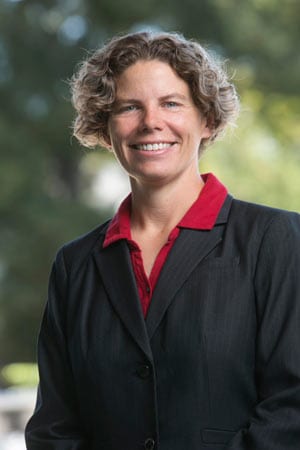
When teaching her Estates and Trusts course, professor Kristen Holmquist continually strives to humanize the content. “Yes, the prevailing laws and legal concepts are vital for students to grasp,” she says. “But there are always human elements involved—love, death, marriage, divorce, grudges, family dynamics—that also impact the work.”
So when faculty colleague Betsy Candler asked about test-driving a mediation lab to augment Holmquist’s course, she leapt at the chance. The one-credit pilot launches this fall.
“Mediation is becoming more and more popular in legal practice, especially in an area like estates and trusts,” Candler says. “The idea is to give Kristen’s students a chance to work through some of the case studies they’re learning about, in a real-world mediation setting.”
Following the 2008 recession, the demand for mediation has grown steadily amid court budget cuts and crowded dockets, the exorbitant cost of discovery, and clients more closely scrutinizing legal costs.
After spending more than a decade as a criminal defense lawyer, Candler became a mediator herself, developing expertise in alternative dispute resolution. She also joined Berkeley Law’s LL.M. Legal Research and Writing program in 2012 and was named director in 2014 (though she will soon relinquish that role to teach more experiential courses).
In the new mediation lab, Candler will provide insights from her own experience and enlist seasoned area mediators to facilitate simulations—with students playing character roles. She will evaluate the lab’s success after the fall pilot test, and determine whether it might be a valuable adjunct to several other courses she has identified.
“To have Betsy help incorporate more hands-on learning for the people in my class is tremendously exciting,” says Holmquist, Berkeley Law’s associate director of experiential education and Academic Support Program director. “We have an obligation to fully prepare our students for practice, and this new course definitely serves that goal.”
—Andrew Cohen
